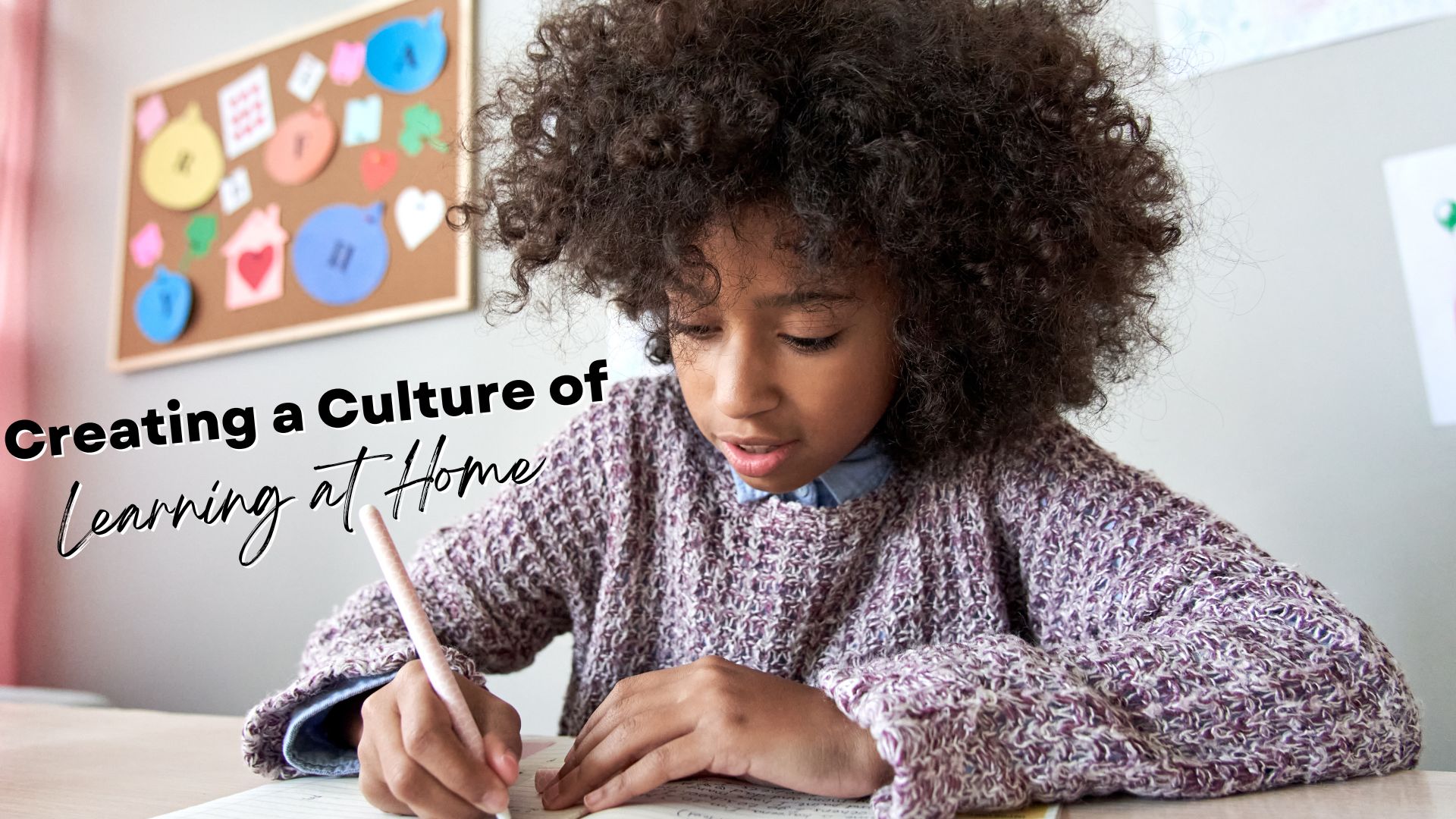Latest From Upschool
- How to Stop Kids’ Meltdowns and Gain Their Cooperation
- Making Big Decisions When You and Your Co-Parent Disagree
- Building Your Child’s Self Esteem
- Separation Anxiety & Starting School
- Why Parents Should Listen to Kids
- How To Raise Emotionally Intelligent Children
- How to Combat End of Year Fatigue
- Navigating Technology and Kids: A Guide for Parents
-
-
No videos yet!
Click on "Watch later" to put videos here
- View all videos
-
-
-
Don't miss new videos
Sign in to see updates from your favourite channels
-
Guest Contributors
Health & Wellbeing (Guest Contributors)
Creating a Culture of Learning at Home

Published by: Digital Schools
In today's dynamic world, where knowledge evolves rapidly, cultivating a culture of learning at home is more crucial than ever. As parents, guardians, or educators, we play a pivotal role in shaping our children's attitudes towards learning and helping them develop a lifelong love for acquiring knowledge. Here are some effective strategies and tips to create a nurturing environment for learning within the comfort of your home.
Lead by Example:
Children often mimic the behaviors of adults around them. Demonstrate your own enthusiasm for learning by openly pursuing your interests, whether it's reading, exploring new hobbies, or acquiring new skills. Your passion will inspire them to embrace a similar curiosity and thirst for knowledge.
Foster Curiosity:
Encourage questions and curiosity by creating an environment where inquiry is welcomed. Engage in conversations that stimulate critical thinking and exploration. When children express interest in a topic, provide them with resources, books, or activities that allow them to delve deeper into it.
Make Learning Fun:
Learning doesn't have to be confined to textbooks and structured lessons. Incorporate games, experiments, and hands-on activities into daily routines to make learning enjoyable. Whether it's conducting science experiments in the kitchen or embarking on a virtual world tour through books and videos, infuse excitement into the learning process.
Create a Dedicated Learning Space:
Designate a specific area in your home for learning activities. This could be a cozy corner with a comfortable chair and a bookshelf stocked with age-appropriate reading materials, puzzles, and educational games. A well-defined learning space helps establish a sense of routine and focus.
Embrace Technology:
Incorporate technology judiciously to supplement traditional learning methods. Educational apps, interactive websites, and online courses offer valuable resources to expand children's knowledge and skills. Monitor screen time and ensure that digital tools are used purposefully to support learning goals.
Encourage Lifelong Learning Habits:
Instill the value of continuous learning by emphasizing that education is a lifelong journey. Celebrate achievements, no matter how small, and encourage perseverance in the face of challenges. Teach children to set goals, manage their time effectively, and seek opportunities for growth and self-improvement.
Cultivate a Growth Mindset:
Promote a growth mindset by emphasising the importance of effort, resilience, and learning from mistakes. Encourage children to view challenges as opportunities for growth rather than obstacles. Praise their efforts and progress, and remind them that intelligence and abilities can be developed through dedication and practice.
Incorporate Learning into Everyday Activities:
Integrate learning into daily routines and activities. Whether it's counting grocery items at the store, discussing scientific concepts while cooking, or exploring nature during outdoor adventures, seize opportunities to turn everyday experiences into valuable learning opportunities.
Encourage Reading:
Nurture a love for reading by exposing children to a wide variety of books and genres. Set aside time for family reading sessions or establish a bedtime reading ritual. Create a cozy reading nook with pillows and blankets where children can escape into the enchanting world of books.
Be Flexible and Adaptive:
Recognise that every child has unique interests, learning styles, and pace of learning. Be flexible in your approach and adapt teaching strategies to suit individual needs. Create a supportive environment where children feel empowered to explore their interests and pursue their passions.
By implementing these strategies and fostering a culture of learning at home, you can empower your children to become lifelong learners who are curious, adaptable, and eager to explore the world around them. Remember that learning is a journey, and by nurturing a love for knowledge, you are laying the foundation for your children's future success and fulfillment.
TAGS
The content by "Digital Schools" which can be found under the "Guest Contributor" category on this platform is produced by Digital Schools PTY LTD. Digital Schools works in partnership with the school as a 3rd party provider to help build and maintain the school website. As well as this, we assist the school by engaging with a range of experts who already provide products and/or services to educational institutions and we work with them to produce and publish information to this website that we think may be relevant, interesting or topical to families within the community.
PLEASE NOTE: The views, opinions and content published by us are that of the "Guest Contributor" and/or publisher (Digital Schools). It should be noted that whilst the publisher and guest contributors are acting with the best intentions and in the best interests of the school and their community, sometimes the content may not necessarily reflect the views of the school. We welcome your feedback. Down the bottom of this page is a feedback form so you can let us know what you think.
NEW TO EXPLORE




